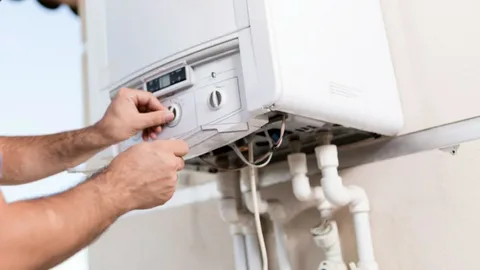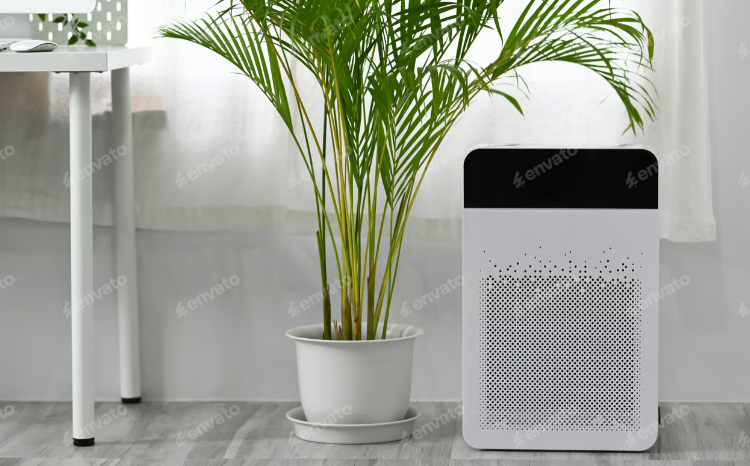
Proper heating installation is a vital component of home comfort and energy efficiency. Whether you’re installing a new heating system or replacing an old one, the quality of the installation plays a significant role in ensuring that your system operates efficiently and effectively. A well-installed heating system ensures consistent temperatures, reduces energy costs, and increases the lifespan of the equipment. In this guide, we’ll explore how professional heating installation can positively impact your home.
1. Ensures Consistent and Comfortable Temperatures
How Proper Installation Enhances Temperature Control
When heating systems are installed correctly, they ensure that every room in your home receives consistent heat. An efficient installation helps eliminate cold spots and prevents uneven heating. With a well-calibrated system, you’ll experience better temperature control, meaning that your home will feel warm and comfortable throughout.
The Importance of Balanced Heating
Improperly installed systems can result in certain areas of your home becoming colder than others, requiring you to adjust the thermostat constantly. Proper heating installation optimizes airflow and heat distribution, making sure that all rooms maintain a steady temperature. This results in better comfort for everyone in the household.
2. Improves Energy Efficiency
Reducing Energy Wastage with Proper Installation
One of the main benefits of professional heating installation is energy efficiency. A correctly installed system is optimized to use the least amount of energy to heat your home, ensuring that you don’t waste money on excess energy consumption. An inefficient system will struggle to reach the desired temperature, consuming more energy to do so.
How Proper Installation Impacts Efficiency
When a heating system is installed with precision, it operates more efficiently. This means that it doesn’t have to work harder than necessary to keep your home comfortable. In contrast, an improperly installed system can lead to energy wastage, higher utility bills, and increased wear on the equipment, which can shorten its lifespan.
3. Extends the Lifespan of the Heating System
Reducing Wear and Tear on Your Heating System
Proper installation reduces strain on your heating system, helping it last longer. When a system is set up by professionals, it is correctly sized for your home, meaning it won’t be overworked. This balanced operation minimizes wear and tear, allowing the system to operate at peak efficiency for many years.
Preventing Early System Failure
A poorly installed heating system is more likely to experience problems that could lead to early failure. These issues may require costly repairs or, in some cases, complete system replacement. By ensuring proper installation from the start, you can avoid these potential headaches and maximize the lifespan of your heating system.
4. Enhances Indoor Air Quality
Maintaining Clean and Healthy Air with Proper Installation
Heating systems that are properly installed can also have a positive impact on indoor air quality. If a system is improperly sealed or inefficient, it can introduce dust, debris, or even harmful gases into your home’s air supply. Professional installation ensures that the system is sealed tightly and working effectively to maintain clean air circulation.
Preventing Mold and Allergens
In addition, a properly installed heating system helps maintain optimal humidity levels in your home, preventing the growth of mold and reducing allergens. Proper airflow ensures that your home stays dry and clean, which is essential for keeping the indoor air quality high.
5. Reduces Maintenance Costs
Lowering Long-Term Repair Costs
Heating systems that are professionally installed generally require fewer repairs and maintenance over time. A system that is incorrectly installed can lead to frequent breakdowns and costly repairs. With proper installation, you’re more likely to experience fewer issues and enjoy the peace of mind that comes with reliable, long-term performance.
The Importance of Regular Check-Ups
While professional installation is key, it’s also important to maintain the system properly. Even with proper installation, regular servicing is necessary to keep your system running efficiently. A system that was correctly installed will be easier to maintain and will require fewer repairs over time, resulting in lower overall maintenance costs.
6. Increases the Value of Your Home
Impact on Resale Value
A home with an efficient, well-installed heating system will have a higher resale value. Potential buyers are more likely to be attracted to a home with a heating system that is reliable, energy-efficient, and well-maintained. This makes investing in proper heating installation a smart move for homeowners looking to increase the value of their property.
Attracting Buyers with a Comfortable Home Environment
A well-functioning heating system contributes to the overall comfort of your home, which is a major selling point. When buyers feel that they can move in and enjoy comfortable temperatures right away, they are more likely to make an offer. This adds to the overall appeal and value of your home.
7. Meets Local Building Codes and Safety Standards
Compliance with Building Regulations
Proper heating installation ensures that your system meets local building codes and safety standards. Many municipalities have strict codes in place to ensure that heating systems are installed safely and efficiently. A professional installer will make sure that the system adheres to these regulations, protecting your home and family from potential hazards.
Safety and Risk Reduction
An improperly installed heating system can pose safety risks such as gas leaks, electrical hazards, or fire hazards. Hiring a professional ensures that the installation is done correctly, minimizing risks and ensuring that your system operates safely and reliably.
8. Maximizes System Performance
Optimizing Performance for Best Results
With proper heating installation, your system is fine-tuned to perform at its best. The installation process includes setting the correct air flow, ensuring all components are functioning correctly, and checking the system’s performance. When each part of the system works together efficiently, it maximizes performance and reduces the need for frequent adjustments.
Achieving Long-Term Comfort
A well-installed heating system provides consistent, reliable warmth throughout your home. This results in a more comfortable living environment where you don’t have to worry about fluctuating temperatures or constant thermostat adjustments.
Conclusion
Proper heating installation is essential for ensuring optimal home comfort, energy efficiency, and system longevity. From consistent temperatures and reduced energy costs to improved air quality and lower maintenance needs, the benefits of professional heating installation are clear. By investing in high-quality installation, you’re not only enhancing the performance of your heating system but also improving your overall home environment and long-term comfort. Whether you’re replacing an old system or installing a new one, proper installation is the key to achieving the best results.
FAQs
1. How can improper heating installation affect my home?
Improper heating installation can lead to inconsistent temperatures, higher energy bills, system breakdowns, and reduced air quality. It can also shorten the lifespan of the system and result in safety hazards.
2. Should I hire a professional to install my heating system?
Yes, hiring a professional ensures that your heating system is installed correctly, efficiently, and safely. A professional installer will ensure that the system is the right size for your home and that it operates optimally.
3. How do I know if my heating system is installed properly?
If your heating system is working efficiently, providing consistent heat, and has no issues with airflow or unusual noises, it’s likely that it was installed properly. If you’re unsure, it’s always best to have a professional inspection.
4. What maintenance is needed after proper installation?
After installation, your heating system will require regular maintenance, such as cleaning filters, checking the system’s performance, and scheduling annual inspections. This helps to ensure long-term efficiency and performance.
5. How can a new heating system improve energy efficiency?
A properly installed heating system ensures that your home is heated efficiently, reducing energy consumption. By optimizing air flow, sealing ducts, and ensuring the system is correctly sized for your space, energy efficiency is maximized.


